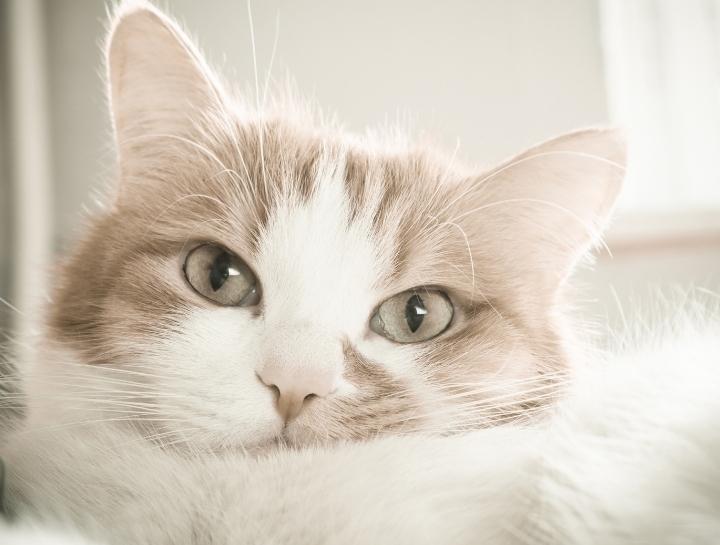Feline Heartworm Disease
An important update on Feline Heartworm Disease-don't leave your cat unprotected!
I thought heartworm was a dog disease?
The heartworm, Dirofilaria immitis, is a mosquito-transmitted blood parasite that normally infects dogs. In the dog, it is the adult worm that causes problems by filling the heart chambers and pulmonary blood vessels with worms. We have known for a long time that heartworms cause heart failure in dogs.
Only recently have we begun to identify heartworm disease in cats. In the cat, it is not just the adult heartworms that are the problem. The mosquito injects a baby heartworm (larva) into your cat’s body, and then this baby worm develops into a teenager worm. In most cats, the teenager worm does not complete its development into an adult heartworm, but what it does is devastating to your cat’s lungs. This new syndrome, Heartworm Associated Respiratory Disease (H.A.R.D.) has been identified in the cat. In some cases, the heartworm can develop into an adult. Either manifestation of heartworm disease can be fatal, but are also easily and 100% preventable by you, the cat owner.
What are the signs of feline heartworm disease?
Most cats have no signs at all. Heartworm disease is a real misnomer for cats. The disease mainly affects the lungs. Sudden death is not an uncommon manifestation of the disease. Those cats that do have signs of the disease may exhibit anorexia (failure to eat), coughing, lethargy, vomiting, weight loss, collapse, blindness, or difficulty breathing. Many of the cats previously diagnosed with “Feline Asthma” actually may have H.A.R.D. Fortunately, the management of “Feline Asthma” and heartworm disease are the same, namely, steroid therapy (by pill or inhaler), bronchodilators (by pill or inhaler), and monthly heartworm prevention.
How is heartworm disease diagnosed?
In the cat, we recommend a two-part blood test, chest x-rays, and an ultrasound of the heart. In many cases, cats with heartworm infection will test negative on the blood tests and we only sometimes see adult worms on the ultrasound test. The chest x-rays are taken to look for damage in the lungs. There is NO test for a teenager worm, which is the life stage that causes Heartworm Associated Respiratory Disease (H.A.R.D.)
There can be many false negative and false positive results in feline heartworm testing. For this reason, we do not perform annual heartworm testing in cats like we do in dogs.
How is heartworm disease treated?
Veterinarians have not yet found a treatment for this disease in the cat. The treatment used to treat dogs is fatal to the cat.
All cats should be on regular, monthly heartworm prevention:
A mosquito can get into your home any time you open a door or a window. Even if your animals never go outdoors, they are still at risk for a mosquito bite and potentially a heartworm infection. Studies have shown that 28% of all the cats that die of heartworm disease were 100% indoor cats! Heartworm prevention works retroactively. This means that it kills any baby or teenager heartworms that were introduced in the past month. Prevention is the most important part of controlling the disease and is recommended monthly for all cats at all times.
Monthly heartworm prevention is no longer an optional recommendation. www.knowheartworms.org

